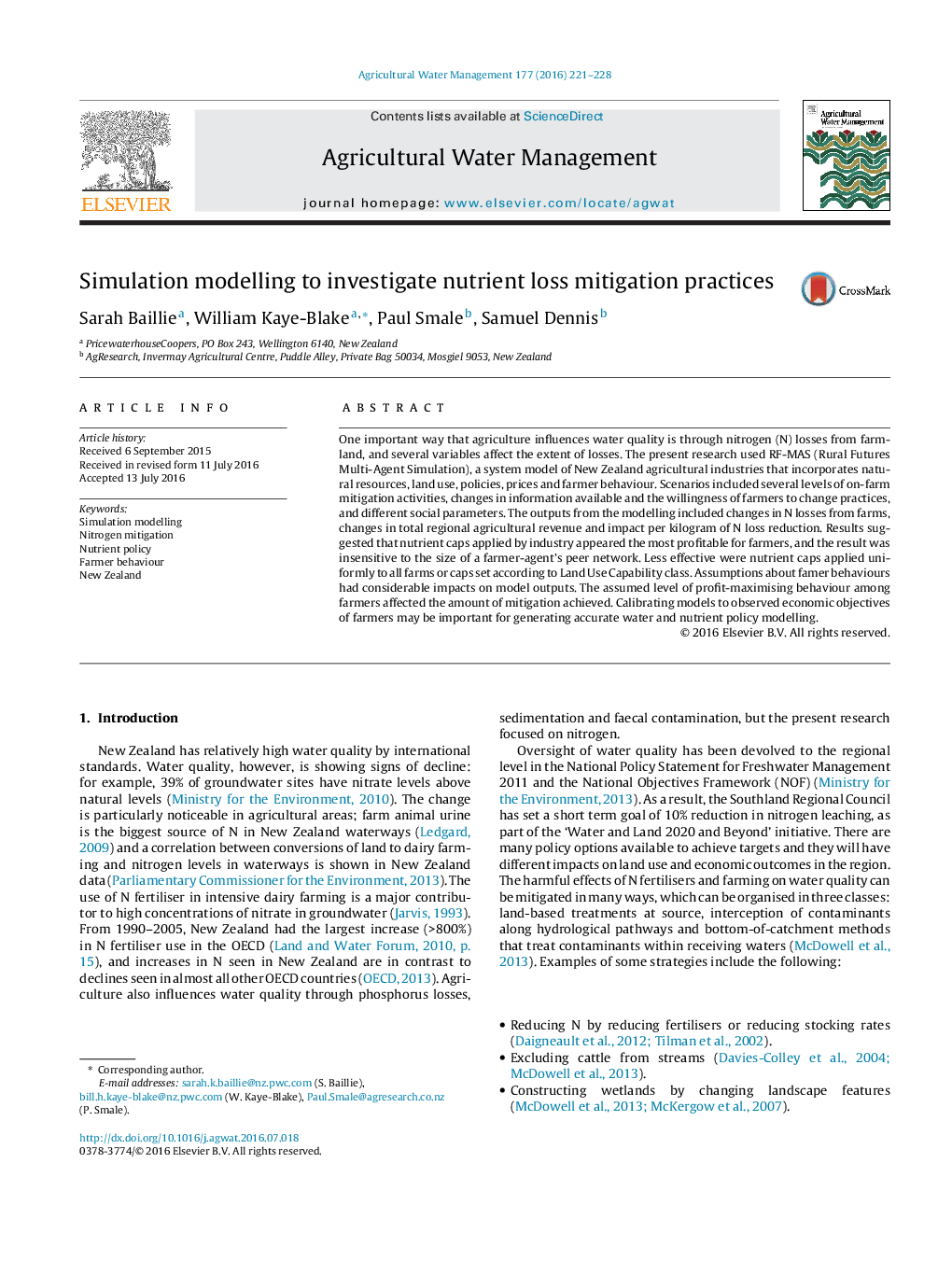| Article ID | Journal | Published Year | Pages | File Type |
|---|---|---|---|---|
| 6363408 | Agricultural Water Management | 2016 | 8 Pages |
Abstract
One important way that agriculture influences water quality is through nitrogen (N) losses from farmland, and several variables affect the extent of losses. The present research used RF-MAS (Rural Futures Multi-Agent Simulation), a system model of New Zealand agricultural industries that incorporates natural resources, land use, policies, prices and farmer behaviour. Scenarios included several levels of on-farm mitigation activities, changes in information available and the willingness of farmers to change practices, and different social parameters. The outputs from the modelling included changes in N losses from farms, changes in total regional agricultural revenue and impact per kilogram of N loss reduction. Results suggested that nutrient caps applied by industry appeared the most profitable for farmers, and the result was insensitive to the size of a farmer-agent's peer network. Less effective were nutrient caps applied uniformly to all farms or caps set according to Land Use Capability class. Assumptions about famer behaviours had considerable impacts on model outputs. The assumed level of profit-maximising behaviour among farmers affected the amount of mitigation achieved. Calibrating models to observed economic objectives of farmers may be important for generating accurate water and nutrient policy modelling.
Related Topics
Life Sciences
Agricultural and Biological Sciences
Agronomy and Crop Science
Authors
Sarah Baillie, William Kaye-Blake, Paul Smale, Samuel Dennis,
